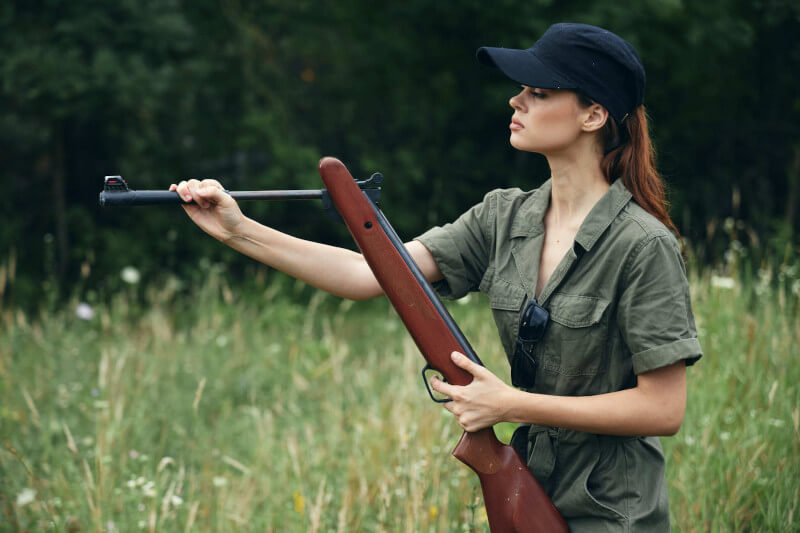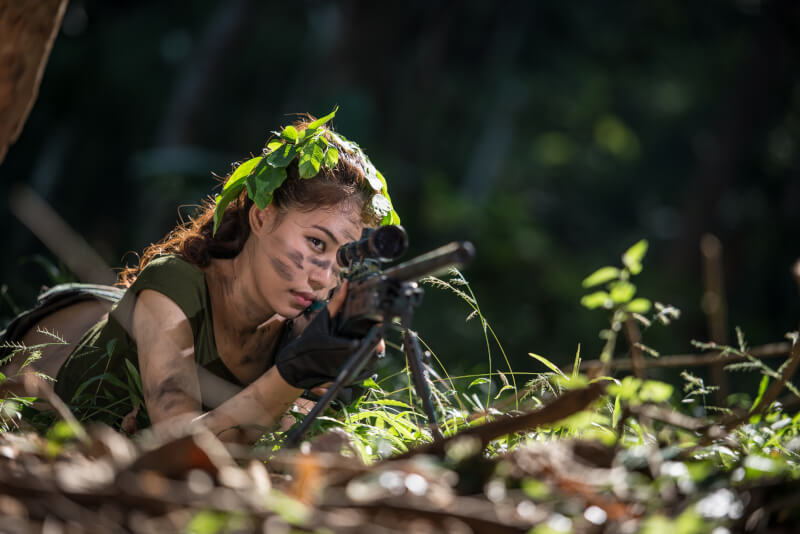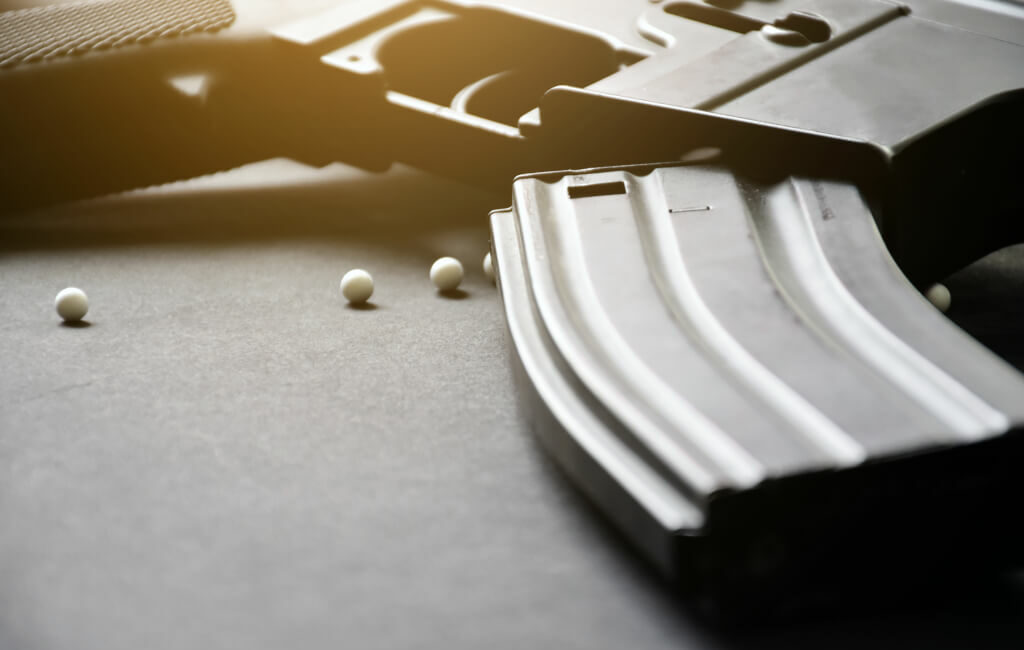Prop firearms are subject to the same safety regulations as real firearms. Clear communication is essential to ensure that all crew members are aware of safety procedures and what is expected of them while filming, and that actors feel safe when handling prop guns.
What is the Function of a Prop Gun?
In movies, TV shows, and plays, a prop gun is used to give the impression that a genuine firearm is being used. Prop guns are actual guns most of the time, in case you were wondering. There are two main types of fake firearms:
Guns used on set are real firearms that fire blank cartridges, which include primer and gunpowder but no projectile. Some replicas of real firearms used as props need to be altered so that they can only shoot blanks. Some firearms, including revolvers, can be used to discharge blanks without any adjustments.
Metal, resin, plastic, and rubber are all viable materials for replica gun manufacture. These fake firearms are incapable of holding or firing real ammunition. Some reproductions are remarkably indistinguishable from actual firearms in appearance, operation, cycling, magazine loading, and cylinder rotation, but they cannot chamber a bullet or discharge a blank. Most of the time, rubber guns are utilized for stunts or when a real gun needs to be dropped.
Background actors can utilize plastic or other solid prop pistols by simply slipping them into a holster. Inert dummy cartridges, consisting of a brass case and bullet (projectile) without primer or gunpowder, are fitted into the cylinder of revolvers to give the firearm a more convincing appearance. Please abide by these guidelines regarding the use of fake firearms on set.
The First Rule Regarding Guns

Prop guns should be checked whenever they change hands and should be treated as if they were real and loaded by whoever is handling them. Blank-firing real firearms or reproductions meant to seem like real firearms but incapable of firing a blank or bullet are examples of prop weapons. Airsoft guns are an excellent option for low-budget films because they are both inexpensive and realistic looking.
Blanks pose a threat because they cause a deadly pyramid of hot gases and gunpowder to be released from the muzzle. The actor needs to keep their distance while firing blanks because they can cause serious injury to anyone in their line of sight. Prop guns need to be supervised by an armorer or other trained professional, for example; safety regulations are in place for a purpose. All firearms, whether fake, real, or replica, require the same degree of care and respect.
It’s also smart to shoot the most difficult moments first and mix them whenever possible. If your team is feeling energized and ready to go at the start of the day, shooting sequences involving firearms could be a good choice. When drawing out a shooting schedule, be sure to factor in time for any scenarios involving fake firearms. When everyone involved in the production is at their best, mishaps are less likely to occur.
Don’t Go Off the Deep End
Despite your best efforts to prevent harm, accidents will still occur. Avoid pointing a gun straight at the target and handle it with care. Even if the gun isn’t genuine, safety must always be the top priority for any scenario involving a handgun. Prop guns are not to be pointed at people or objects, even if they are just off to the side. Be sure you have a firm grasp on where and how to point your prop pistol.
Don’t touch the trigger until you’re ready to fire the shot or have completed a successful chamber test. Prop guns and replicas should be subject to the same regulations as real firearms to ensure the safety of all cast and crew members. Gunfights in films typically rely on CGI instead of actual prop weapons. However, there are cases where fake gun sounds just won’t do, and that’s where props come in.
Even though prop firearms are checked by professionals whenever they change hands, you should still double-check them whenever you get a new one. Make sure the gun is in good working order and safe to use before you enter the site. Never attempt to alter a prop gun on your own; instead, contact an armourer or prop master.
When an actual gun is used in a film, a gun safety person is usually brought in as a specialist to ensure everyone’s safety. The use of prop guns is managed by the props department, which also enforces the necessary safety measures. The Performers’ Equity Association guarantees that films follow all regulations while filming by providing union representatives to ensure performers’ rights are protected on set. Employ a prop master, have actors undergo extensive training, and comply with all applicable local, state, and federal laws regarding the usage of prop weapons.
Make Use of Shields for Defence
Prop weapons, when used properly, can help performers respond and reflect on the situation, which improves the film’s plot and overall outcome. However, following the set’s safety regulations regarding the use of prop firearms is of the utmost importance. Cast and crew members should always wear protective shields when working on a film that features firearms. In scenes involving firearms, it is important to shield onlookers and provide them with earplugs.
Prop Guns Require Careful Attention to Distance on Set

Since actors are only human and prone to making mistakes, a firearms expert will often increase the minimum safe distance by a factor of three during filming. When an actor is shot in a movie, the actor shooting the prop gun is usually not in the same shot as the actor who is getting shot. It is your responsibility to ensure the safety of the actors and crew throughout filming, as they will be near the prop gun’s explosion.
Having a trained firearms expert on set is crucial, but so is the safety net you provide for the actors and staff. A blank explosion may affect the camera crew and the actors in the scene. Prop gun users and anyone tasked with capturing them should always wear protective gear, including earmuffs, wraparound safety glasses, and face shields. Get the word out to your team that they must take all precautions.
On-Set Prop Gun Regulations
Make sure your team has the proper education and training to safely operate prop weapons, and that any tweaks or other adjustments are left to the experts. When used properly, prop guns can add authenticity to your picture and serve as a huge asset, but only if precautions are taken.
